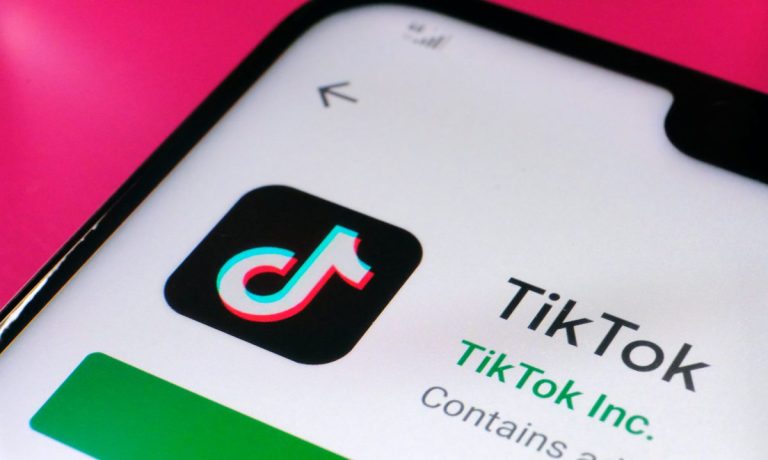What a Ban on TikTok in the US Could Mean for Brands and Retailers

TikTok CEO Shou Zi Chew testified before the House Committee on Energy and Commerce for about five hours on Thursday (March 23). Throughout the hearing, there were numerous tense exchanges on different issues, including TikTok’s connection to China and the measures taken to safeguard the 150 million Americans using the app.
Chew faced a barrage of questions from members who expressed apprehension about protecting Americans’ data privacy, ensuring children’s online safety and TikTok’s potential association with the Chinese Communist Party. The hearing was presided by committee Chair Rep. Cathy McMorris Rodgers (R-Wash.) and ranking member Rep. Frank Pallone (D-N.J.).
Although it is uncertain if TikTok will be banned in the U.S., the consequences of such a ban would go beyond the disappearance of the popular doom scrolling app. It would have a considerable impact on brands, retailers and influencers who have come to depend on the platform to generate sales.
A Brief History of TikTok
TikTok was originally launched in September 2016 by Chinese tech company ByteDance. The original version of the app was called Douyin.
The app quickly gained popularity in China, and ByteDance saw an opportunity to expand the app’s reach globally. In 2017, ByteDance launched an international version of the app called TikTok, which was made available for download in app stores outside of China. By 2018, TikTok had become the most downloaded app in the U.S. and other countries, and it has continued to grow.
Fast forward 2023, TikTok has become a cultural phenomenon, with 150 million monthly active users in the U.S. alone. It has also become a popular platform for brands and retailers to reach younger audiences and promote their products. However, with growing concerns about data privacy and TikTok’s ties to China, there has been talk of banning the app in the U.S. But that outcome could lead to a big downside for brands and retailers that count on the app to reach consumers.
Brands and Influencers
Not only would brands and retailers lose their established a presence on the platform, as many companies have invested time and resources in creating TikTok content to reach a younger audience and drive engagement, they would lose a connection that TikTok has built a following on — authenticity. Content that thrives on TikTok tends to lack production and has a way of making viewers feel as if the person they are watching is in the same room, a dynamic brands and retailers find valuable.
Moreover, a ban on TikTok would drastically change the influencer marketing game, as many brands today partner with popular creators to promote their products.
In 2022, the influencer marketing industry reached $16.4 billion, and 67% of brands and retailers reportedly intend to increase their influencer marketing spend in 2023, while 23% plan to spend more than 40% of their marketing budget on influencer marketing.
See also: Why TikTok’s ‘Deinfluencing’ Trend Is Just Another Form of Influence for Brands
A Revenue Driver
TikTok has allowed many businesses to not only gain exposure and trust among new audiences, it has also been able to turn these bonds into transactions. Over 50% of small businesses using TikTok have experienced a substantial improvement in their overall marketing performance, and 78% have reported a positive return on investment (ROI) from their TikTok ads. Furthermore, over 50% of these brands saw a positive ROI within six months of implementing their TikTok advertising strategy.
Many TikTok users have said if the app were banned, they wouldn’t be so quick to run back to other platforms like Facebook and Instagram. In response to a potential ban, TikToker @ notnotnotrekcut said, “I am not going back to Facebook. Meta is dying.” TikToker @jayloowis followed up in the feed, saying, “They are insane if they think I’m going to REELS if TikTok gets banned.”
Who Will Take Over?
If this is the end for TikTok in the U.S., who will take over? Will it be Instagram, Snapchat, YouTube? Or is there another app that’s not even on our radar?
At the moment, Instagram and Snapchat are both popular platforms that have similar features to TikTok, such as short-form video content and filters. YouTube could also be a contender since it has a massive user base and is a popular destination for video content.
There are, however, also new and emerging social media apps that could potentially take advantage of a TikTok ban and gain more attention from brands and consumers. For example, apps like Triller, Byte, and Dubsmash have gained popularity in recent years as alternatives to TikTok. However, it remains to be seen whether these apps can gain the same level of popularity and influence as TikTok in the long term.
For all PYMNTS retail coverage, subscribe to the daily Retail Newsletter.